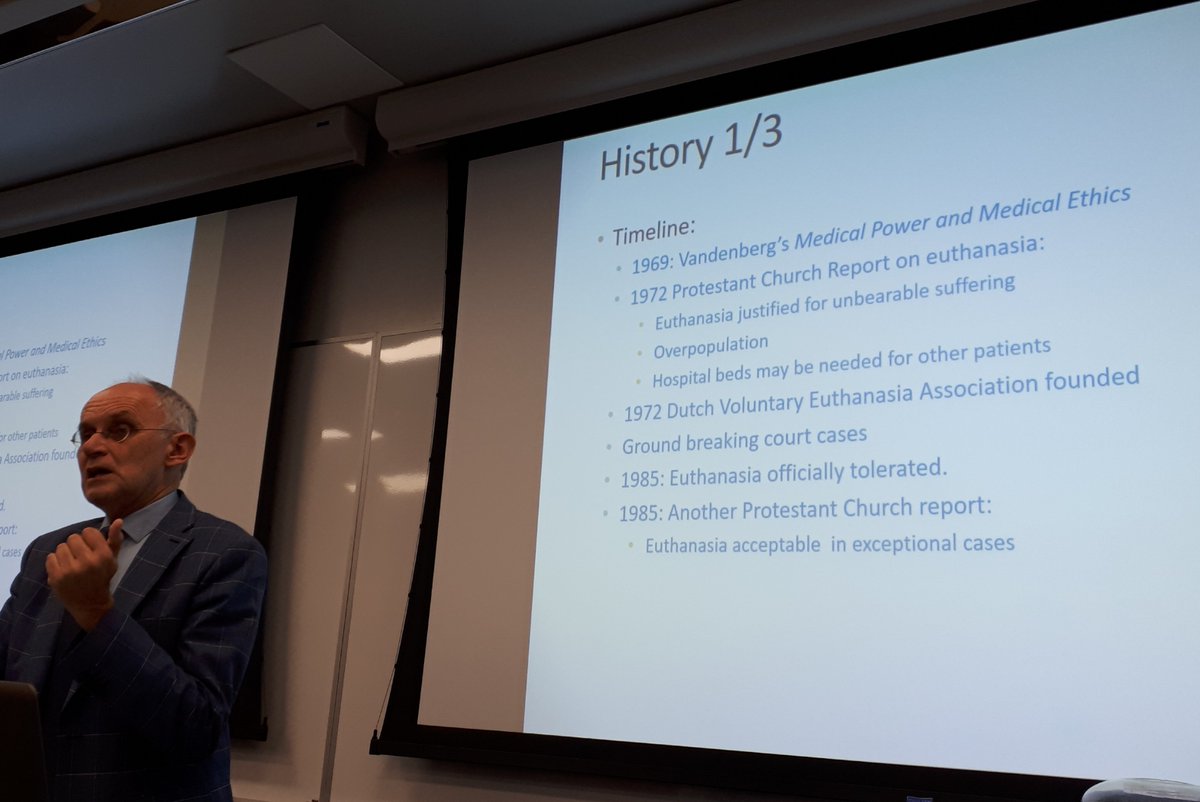Our son enjoys an excellent ‘ordinary life’ with the support of his helpers, medical professionals, friends and family. As a person with chronic pain, he spends most of his time lying down in bed, a place of comfort from which he writes a hockey blog, Skypes friends, tweets opinions and conducts research into sports history.
We live in Canada and recently, a legal ruling came down that has me very worried for my son's future. A Quebec Superior court ruled in favour of Jean Truchon (who has cerebral palsy) and Nicole Gladu (who has post-polio syndrome) when they challenged Canada's eligibility rules for access to medical assistance in dying. The judgement stated, "The reasonably foreseeable natural death requirement deprives both individuals and claimants of their autonomy and their choice to end their lives at the time and in the manner desired." Lawyers for the federal government argued that the "foreseeable death" criterion is necessary to protect "vulnerable" people who are suffering from serious ailments but are not fatally ill from using the law as a way to die by suicide. The federal government has not appealed the ruling and that has my family very worried. Who will protect our son's right to LIVE?
The greatest worry in our family is not who will love our son after my husband and I die (we have a plan for that), but rather who will protect the integrity of the supports he needs in order to make his life liveable. The possibility of losing those supports and the legal basis on which to reinstate them is the reason why I am an advisor to The Vulnerable Persons Standard. I believe that any framework for Medical Assistance in Dying that expands eligibility beyond those who are at the natural end of their lives will threaten my son and the supports he needs to live. There is simply no alternative safeguard or protocol that would in any way remedy or ameliorate the harm that removing requirement for nearing a natural death will cause.
Do I believe that people at the end of their lives should have unfettered access to medical assistance in dying? Yes. Do I believe that people should have access to medical assistance in dying if they are not at the end of life? No. Would I want access to medical assistance in dying if I was in pain at the end of my life? Maybe. Would I want support to live a good life if I suddenly became disabled by something like stroke (as happened to my father) or by Parkinson's Disease (as happened to my step-father)? YES.
Do I have a really good reason to be worried about this ruling as it pertains to our son? Yes. Just consider this tweet from Canadian Professor of law and bioethics, Trudo Lemmens:
Remarkable historical fact Dutch #euthanasia policy. Report 1972 Protestant church recommended legalization also because 2) scarcity hospital beds 3) overpopulation ! Extraordinary pragmatism & honesty. Now never publicly stated. #MAID
presentation @ Huron University
11:54 AM · Dec 1, 2019Twitter Web App
My son’s essential supports are expensive (he is among those living in the community with the highest needs). There will be those who would draw negative assumptions about the quality of his life based on the severity of his disabilities. Those people have not talked to our son. But the pressure to save community health dollars at the expense of the most vulnerable (especially those who are non-speaking), is to me, an obvious outcome of removing the Medical Assistance in Dying requirement for nearing a natural death. Assuming that the goodwill of people will protect my son’s life is not good enough – he needs the law behind him.



2 comments:
Hi Donna,
I agree that there needs to be some kind of legislation in place that would prevent someone deciding that our sons don't live valuable lives, and taking their right to choose away... but... I also believe that people should have a right to make their own choice about the when and how of their passing. People like my brother should have been able to ask for help rather than taking his own life. It's a very very difficult subject, but the older I get, the more sure I am that people should be allowed to make their own choices, even if it means for the future when they can no longer make choices.
Love to you and Nick :)
Jeanette
Oh Jeanette, I am so sorry about your brother. It is a very difficult topic, indeed.
Post a Comment